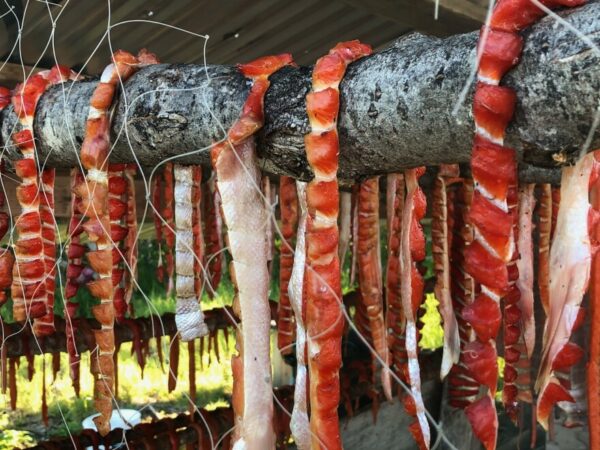
The federal government has denied a petition to eliminate chinook salmon bycatch and cap chum salmon bycatch in the Bering Sea pollock fishery. Tribal groups in Western Alaska submitted the petition following dismal chinook and chum salmon runs this summer.
In a letter denying the tribal groups’ petition request, the National Marine Fisheries Service wrote that the requested limits on bycatch would likely not make a big difference for Western Alaska salmon runs. The fisheries service estimates that less than 3% of chinook salmon bycatch and less than 1% of chum salmon bycatch in the Bering Sea Pollock Fishery are from Western Alaska rivers.
“I question that number. I think there needs to be more research on that,” said Mike Williams Sr., chair of the Kuskokwim River Inter-Tribal Fish Commission, one of the tribal groups that petitioned the federal government to add new salmon bycatch limits. Williams Sr.’s group has also asked the federal government to conduct up-to-date analysis to find what percentage of chinook and chum salmon bycatch is from Western Alaska.
In October 2021, the federal body that regulates the Bering Sea pollock fishery, the North Pacific Fisheries Management Council, asked the National Marine Fisheries Service to fulfill that request.
Williams Sr. said that he knew the petition was a long shot, but he’s still disappointed it got denied.
“Our relatives up in the Yukon are really suffering right now because of the zero fishing this summer. The pollock fishery, even they say 3%, they should knock it off for a while,” Williams Sr. said.
Williams Sr. said that he and the Kuskokwim River Inter-Tribal Fish Commission will continue to fight for lowered chinook and chum salmon bycatch limits in the Bering Sea.
[Sign up for Alaska Public Media’s daily newsletter to get our top stories delivered to your inbox.]




